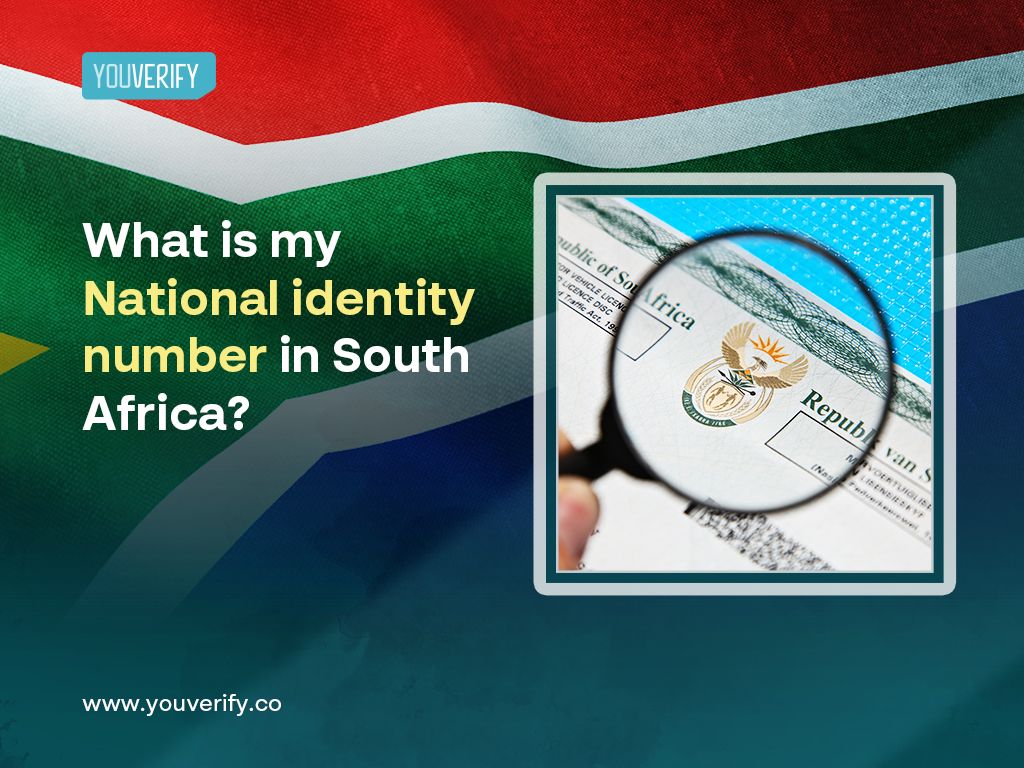Most governments of the world issue identification numbers to their citizens to aid the verification or authenticity of their identity and to maintain records. It can also help law enforcement seamlessly identify individuals in the digital world. South Africa isn't exempt from that.
The South African Department of Home Affairs issues the South African national identity card to the citizens of South Africa. This card bears or includes details such as:
1. Biometric fingerprint verification
2. A PIN code that is known only to the user
3. Embedded secure software
4. Contactless technology
.5. Visual security printing features
6. A highly durable polycarbonate ID card body
To get a South African id card, you must be a South African citizen born in South Africa. You also need a South African identity number to apply for a passport.
What is a National Identity Number?
A National Identity Number is a unique identifier issued by governments to their citizens and sometimes residents for the purpose of verifying identity and maintaining records. This number is used across different services and systems, such as healthcare, banking, voting, and tax filings, making it a core element of personal identification in this digital age. Most of the time, without a national identification number, you may not be able to access some public services or rights. For example, without a national identification number, you will not be allowed to vote.
What is the National Identification Number in South Africa
In South Africa, the National Identity Number is part of your South African ID number, issued by the Department of Home Affairs. It is a 13-digit number that encodes cogent personal information and serves as an official identifier for South African citizens and permanent residents.
What is the Citizenship Code for South African ID Holders?
The citizenship code for South African ID holders is 0.
This code is found in the 11th position of the 13-digit ID number.
- 0 indicates that the individual is a South African citizen by birth.
- 1 indicates that the individual is a permanent resident who was not born in South Africa.
- YYMMDD: The first six digits represent your date of birth. For example, someone born on March 15, 1990, would have "900315" as their first six digits.
- SSSS: The next four digits are a gender identifier. Females are assigned numbers between 0000 and 4999, while males are assigned numbers between 5000 and 9999.
- C: The seventh digit indicates your citizenship status. A "0" means you were born a South African citizen, while a "1" indicates that you are a permanent resident.
- Z: The final digit is a checksum digit calculated using the Luhn algorithm to verify the accuracy of the ID number.
For example for a female South African ID card, if a South African woman was born on January 10, 1985, her ID number might start with "8501101234". The "850110" represents her birthdate, "1234" is her gender identifier (female), and the "0" indicates that she is a South African citizen by birth. The final digit is the checksum.
Who Issues A National Identity Number In South Africa?
The South African Department of Home Affairs issues the National Identity Number in South Africa.
How To Get Your National Identity Number In South Africa?
In South Africa, your national id number is assigned and printed on your birth certificate. This number, along with your full name, birthplace, and an official photograph, can all be found on the first page of your identity card.
You only need to follow three simple steps to apply for an identity document in South Africa.
1. Visit a Department of Home Affairs office
2. apply online at the Home Affairs e-Channel website or visit a South African mission or consulate abroad.
3. Submit The following documents as requested:
- A completed BI-9 in black ink
- A certified copy of your birth certificate or a reference document
- Two identical color ID photographs
- You will need to do a biometric scan, a fingerprint scan
Related: Phone Number Verification in South Africa
Youverify Can Detect Fake National Identity Numbers!
With Youverify’s ID Data matching, companies can detect fake national identity numbers or spot fake national identity cards on the go and efficiently in real-time. It is a reliable software product that is fast and accurate yet maintains a high level of security and compliance by directly verifying government-issued ID documents like passports, driver’s licenses, and national ID cards.
Here is how it works and helps companies onboard customers with confidence:
Step 1
The customer provides an accepted and valid identity information, for example, a Driver's license number or a national identity number.
Step 2
The number or detail is collected and verified against Youverify’s 300m+ global government-backed database and document verification services.
Step 3
If the results are positive, that means there is a match in the global database, and the number or government-issued details are valid. If the result is negative, it is a fake national identity number. Response is quick and reliable, with almost 0 false positives.
Youverify is POPIA compliant and a good fit for South African companies, including financial institutions and types of institutions that are heavily regulated and require the verification of a customer’s identity to curb the risks of their business model.
Try Youverify's powerful ID data matching, or sign up for a free demo to give it a trial.
